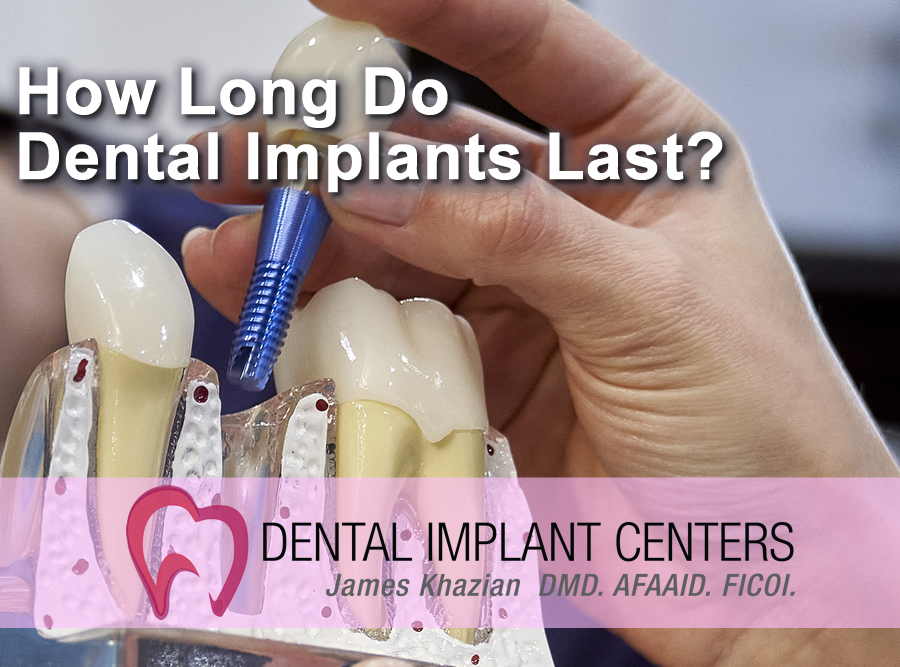Summary
Dental implants have transformed contemporary dentistry, offering a long-lasting and natural-feeling solution for tooth loss. Unlike bridges or dentures, implants are made to work like natural teeth, becoming part of the jawbone for enhanced stability and longevity. But many patients ask: How long do dental implants really last? The answer relies on oral health, daily lifestyle, and the skill level of the surgeon or dentist putting them in place. In the rest of this article, we're going to cover the duration of dental implants and how they can be prolonged to last long.
How Long Do Dental Implants Last?
Dental implants have transformed contemporary dentistry, offering a long-lasting and natural-feeling solution for tooth loss. Unlike bridges or dentures, implants are made to work like natural teeth, becoming part of the jawbone for enhanced stability and longevity. But many patients ask: How long do dental implants really last? The answer relies on oral health, daily lifestyle, and the skill level of the surgeon or dentist putting them in place. In the rest of this article, we’re going to cover the duration of dental implants and how they can be prolonged to last long.
Comprehending Dental Implant Structures
A tooth implant has three distinct parts:
The Implant Post – a screw made from titanium or zirconia put under the bone of the jaw and used to support an artificial tooth root.
The Abutment – A connector that attaches the implant post to the crown.
The Crown – The tooth-like portion which is visible, and custom-designed to fit your own teeth.
All of these parts contribute to the overall durability of the implant. While the implant post will last indefinitely, the abutment and crown will need to be replaced eventually because of normal wear and tear.
Average Lifespan of Dental Implants
Implant Post (Titanium or Zirconia)
The implant post, after it is completely integrated into the jawbone, can last for a lifetime if well maintained. Titanium is biocompatible and integrates with the bone via osseointegration, forming a strong base.
Abutment and Crown
Though the implant post is extremely resistant, the crown and abutment usually have a lifespan of 10 to 15 years before they might require replacement. The way people chew, their eating habits, and teeth grinding may influence how long they last. Good quality materials such as porcelain or zirconia crowns can increase their lifespan with proper maintenance.
Factors That Influence the Longevity of Dental Implants
Some of the factors that determine how long a dental implant lasts are:
- Oral Hygiene Habits
Similar to natural teeth, implants also need brushing, flossing, and dental visits regularly. Lack of oral hygiene can result in peri-implantitis, a type of infection akin to gum disease, which can weaken the stability of the implant.
- Lifestyle Habits
Some habits can adversely affect dental implants, including:
Smoking – Can cause implant failure due to poor blood supply and slower healing.
Teeth Grinding (Bruxism) – May subject implants to excessive stress, which may cause harm over time.
Poor Diet – Eating too much sugar and acid-containing foods may impact the gums and bone around the implants.
- Bone Density and Health
A healthy and strong jawbone is essential for the success of an implant. Osteoporosis or bone loss can impair the implant’s integration into the bone, shortening its lifespan. Bone grafting to support the jaw prior to implantation might be required in certain situations.
- The Dentist’s Expertise
The level of skill and experience of the oral surgeon or dentist carrying out the procedure greatly influences implant success. Accurate placement ensures appropriate integration and minimizes the potential for complications.
How to Make Your Dental Implants Last Longest
In order to have your dental implants last as long as they can, adhere to the following best practices:
Have Excellent Oral Hygiene – Brush your teeth at least twice a day, floss regularly, and use an antibacterial mouthwash to ward off infections.
Schedule Regular Dental Check-Ups – See your dentist every six months for professional cleanings and implant checks.
Avoid Hard or Sticky Foods – Chewing hard candies, ice, or sticky foods can crack the crown and abutment.
Wear a Mouthguard if Necessary – If you grind your teeth during sleep, a custom mouthguard can save your implants.
Quit Smoking – Smoking lowers implant success rates and raises the risk of complications.
Signs Your Dental Implant Needs Attention
Though dental implants are made to last, something can still go wrong. Keep an eye on these warning signs:
Long-lasting Pain or Discomfort – It might be due to infection or misplacement.
Loosening of the Crown or Implant Post – The post or crown feels loose. See your dentist immediately.
Gum Inflammation or Bleeding – Red flags for peri-implantitis, an infection that causes the implant to fail if not treated.
Conclusion
Dental implants are an extremely durable and trustworthy tooth replacement solution, capable of lasting a lifetime if well maintained. Although the implant post itself is meant to be long-lasting, the abutment and crown might require occasional replacement. With proper oral hygiene, healthy lifestyle choices, and regular professional dental treatment, you can extend the life of your implants and have a confident, fully functional smile for many years to come.
From the replacement of a single missing tooth to extensive reconstruction and replacement of several or even all teeth, Dental Implant Centers offer the healthiest and most intelligent treatment solutions. We provide the most comprehensive treatments for dental implants in San Diego. Both surgical and restorative phases of your dental implant treatment are performed by Dr. James Khazian. There will be no referral back and forth to another doctor or office. This means less confusion, and a more consistent, smoother, and faster dental implant treatment.
For more information about dental implants, all-on-4, all-on-6, bone grafts, sinus graft, full mouth reconstruction, snap on dentures, and cosmetic dentistry, you may request a free consultation with Dr. James Khazian by clicking here or call 619-497-1700 0r 760-738-7000.


